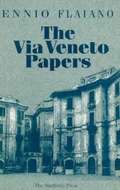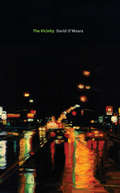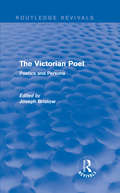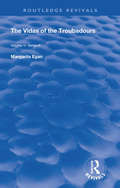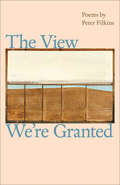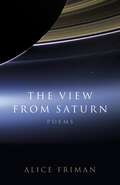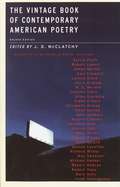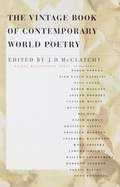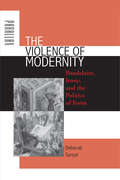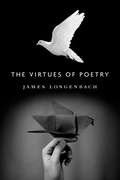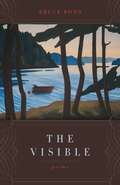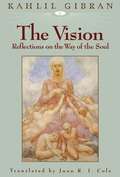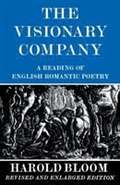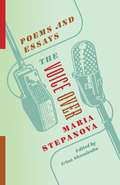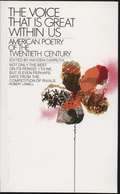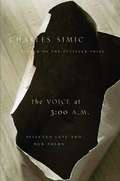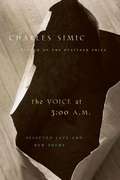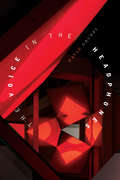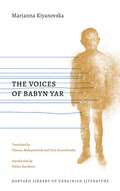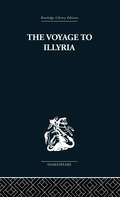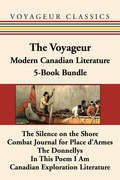- Table View
- List View
The Very Stuff: Poems on Color, Thread and the Habits of Women
by Stephen BealFrom the book: 991 Every red haired woman in the world has worn this green. When the movies went to Ireland in 1952, a chorus line of lady leprechauns tricked out in 991 - satin caps and satin shorts and snappy satin vests- greeted Gene Kelly as he danced off the ship, and down the pier, and through the town, and over the hill, slick two-leaf clovers of green rumps blossoming behind. Blue-green, really, an August color in the shade, deep shade, a shade of the texture and the longing and the long afternoons in the Alabama of Kurt Weill. There is smoke in this green, smoke and romance, as Susan Hayward in a hoop skirt strolls the verandah impatient for her swain. So what we've got here is a movie green, the designer Edith Head swirling out a bolt of 991 - always in satin, only in satin- and draping it around Rita Hayworth, who is perfect, and smooth, like a woman made of peaches, peaches and cognac and vanilla ice cream. How can God make such beauty? How can God resist? The Whole Class When I consider the colors I have written poems for, I see a photo of a class of children in 1948. You can tell the leaders-those who are big, or well dressed, or not intimidated by the camera: the girl with the ribbon in her long blonde hair, the tall boy with the rakish smile, the pretty twins. If these children were the colors I have written poems for, I would say I know them well; I would say they do good work. Yes, I would say, I regard them as my stars. But I would also say I love the rest of the class, those whose features and abilities are not developed yet, the kids who tend to look like each other until you get to know them, until you hold their hands and take them for a walk. So, if you should ask me, "Which colors do you love?," I would have to say, "All." I would have to say, "Here are all my friends," as I take from the drawers of Grandmother's Italian chest the bags and boxes in which I keep my floss, then overturn them on the rug where the colors jumble together in the sun, humming with contentment- like jewels unearthed from Ali Baba's cave, like kids set free from school. ISBN: 1-88301046-0
The Via Veneto Papers: Translated from Italian by John Satriano
by Ennio FlaianoThe first section is an evocation of the Rome of La Dolce Vita, of the early stages in the writing and the realising of the film itself, and, through a series of brilliant little sketches, a commemoration of the ageing poet Vincenzo Cardarelli, sceptical survivor from an earlier time, representative of an altogether different life. "Occasional Notebooks" comprises the second section and the third section is an interview given by Flaiano shortly before his death.
The Vicinity
by David O'MearaWinner of the 2004 Archibald Lampman Award (National Capital Region -- Ottawa) and shortlisted for the 2004 Trillium Book Award for Poetry and the 2004 ReLit Awards In The Vicinity David O'Meara gives us a new kind of cityscape, one that brings its unseen, and usually unsung, materials to the foreground. Brick, concrete (that "not-so-silver screen / our walk-on parts are posed upon"), glass, steel, wire: they step boldly from anonymity into fresh focus, backdrops goaded into stardom. Full of casually-worn wit and humour, often using intricate forms that deftly reflect their subjects, these poems probe our conventional attitudes while walking us down present or remembered streets -- "Some-such Avenue / Rue Saint Whatever."
The Victorian Poet: Poetics and Persona (Routledge Revivals)
by Joseph BristowThe practice of poetry in the Victorian period was characterised by an extreme diversity of styles, preoccupations and subject-matter. This anthology attempts to draw out some of the main focuses of interest in the Victorian poet. No Victorian poet produced an overall theory of poetry, yet all accepted it as a natural vehicle of expression, and for some subjects, in particular sexuality, the only literary mode. Indeed, the sexual question was made even more acute by the sudden phenomenon of the ‘poetess’, and the relation of poetry to gender raised interesting new critical questions. At the same time, the cultural role of the poet came under increasing debate: Victorian poetry was the first contemporary poetry to be studied. This selection of central texts illustrates these pressures on the Victorian practice of poetry, and the introductory remarks suggest ways in which theory can be related to the understanding key poems themselves.
The Vidas of The Troubadours (Routledge Revivals)
by Margarita EganPublished in 1984: These texts which have been little studied for their literary qualities represent a vital link between the didactic tradition of the Middle Ages and the fictional short stories of the Renaissance, such as the thirteenth-century collection of tales known as the Novellino, and later, Boccaccio's Decameron.
The View We're Granted (Johns Hopkins: Poetry and Fiction)
by Peter FilkinsThese poems consider large events, such as 9/11 and the Holocaust, as well as everyday concerns like quilting, ice skating, or the beauty of a stand of sugar maples in winter.Co-Winner of the Sheila Motton Book Award of the New England Poetry ClubIn the pivotal poem "Marking Time," which appears almost exactly halfway through Peter Filkins’s fourth collection of poetry, the speaker reflects on the death of a sibling and how time is marked by our memories. These memories, these moments—whether spent contemplating a painting by Vermeer or the simple toss of a bean bag—ultimately shape who we are. "Yet you are with me here, with me here again, / where neither that moon nor you exist, but live / tethered to this memory composed of words." These are poems unafraid to be graceful and engaging. They attain an assurance and stability rare in contemporary poetry, while their careful balance of sadness and joy reminds the reader of the difficult negotiations we make in life.
The View from Saturn: Poems
by Alice FrimanThe View from Saturn endeavors to look at the earth and our life on it from two perspectives at once: objectively, as if from a great distance, and subjectively, focusing in on the body with all its cells and hungers. Alice Friman's poems dance between these two vantage points, asking the important questions: What does it all mean, and what have we become, standing in the midst of the destruction we've wrought by "watching the unthinkable going on"?With dark humor and lyric honesty, The View from Saturn provides both a telescopic and microscopic look at ourselves, exploring how in our smallness and perhaps foolishness we are still capable of attaining a measure of nobility.
The Vintage Book of Contemporary American Poetry
by J. D. McClatchyDazzling in its range, exhilarating in its immediacy and grace, this collection gathers together, from every region of the country and from the past forty years, the poems that continue to shape our imaginations. From Robert Lowell and Elizabeth Bishop, John Ashbery and Adrienne Rich, to Robert Haas and Louise Gluck, this anthology takes the full measure of our poetry's daring energies and its tender understandings.
The Vintage Book of Contemporary World Poetry
by J. D. McClatchyThis groundbreaking volume may well be the poetry anthology for the global village. As selected by J. D. McClatchy, this collection includes masterpieces from four continents and more than two dozen languages in translations by such distinguished poets as Elizabeth Bishop, W. S. Merwin, Ted Hughes, and Seamus Heaney. Among the countries and writers represented are: Bangladesh--Taslima Nasrin Chile--Pablo Neruda China--Bei Dao, Shu Ting El Salvador--Claribel Alegria France--Yves Bonnefoy Greece--Odysseus Elytis, Yannis Ritsos India--A. K. Ramanujan Israel--Yehuda Amichai Japan--Shuntaro Tanikawa Mexico--Octavio Paz Nicaragua--Ernesto Cardenal Nigeria--Wole Soyinka Norway--Tomas Transtromer Palestine--Mahmoud Darwish Poland--Zbigniew Herbert, Czeslaw Milosz Russia--Joseph Brodsky, Yevgeny Yevtushenko Senegal--Leopold Sedar Senghor South Africa--Breyten Breytenbach St. Lucia, West Indies--Derek Walcott--and more.
The Violence of Modernity: Baudelaire, Irony, and the Politics of Form (Parallax: Re-visions of Culture and Society)
by Debarati SanyalThe Violence of Modernity turns to Charles Baudelaire, one of the most canonical figures of literary modernism, in order to reclaim an aesthetic legacy for ethical inquiry and historical critique. Works of modern literature are commonly theorized as symptomatic responses to the trauma of history. In a climate that tends to privilege crisis over critique, Debarati Sanyal argues that it is urgent to rethink literary experience in terms that recall its contestatory potential. Examining Baudelaire's poems afresh, she shifts the focus of critical attention toward an account of modernism as an active engagement with violence, specifically the violence of history in nineteenth-century France.Sanyal analyzes a literary current that uses the traditional hallmarks of modernism—irony, intertextuality, self-reflexivity, and formalism—to challenge the historical violence of modernity. Baudelaire and the committed ironists writing in his wake teach us how to read and resist the violence of history, and thereby to challenge the melancholy tenor of our contemporary "wound culture." In a series of provocative readings, Sanyal presents Baudelaire's poetry as an aesthetic form that contests historical violence through rhetorical strategies of complicity, counterviolence, and critique. The book develops a new account of Baudelaire's significance as a modernist by dislodging him both from his traditional status as a practitioner of "art for art's sake" and from his more recent incarnation as the poet of trauma. Following her extended analysis of Baudelaire's poetry, Sanyal in later chapters considers a number of authors influenced by his strategies—including Rachilde, Virginie Despentes, Albert Camus, and Jean-Paul Sartre—to examine the relevance of their interventions for our current climate of trauma and terror. The result is a study that underscores how Baudelaire's legacy continues to energize literary engagements with the violence of modernity.
The Virtues of Poetry
by James LongenbachAn illuminating look at the many forms of poetry's essential excellence by James Longenbach, a writer with "an ear as subtle and assured as any American poet now writing" (John Koethe)"This book proposes some of the virtues to which the next poem might aspire: boldness, change, compression, dilation, doubt, excess, inevitability, intimacy, otherness, particularity, restraint, shyness, surprise, and worldliness. The word ‘virtue' came to English from Latin, via Old French, and while it has acquired a moral valence, the word in its earliest uses gestured toward a magical or transcendental power, a power that might be embodied by any particular substance or act. With vices I am not concerned. Unlike the short-term history of taste, which is fueled by reprimand or correction, the history of art moves from achievement to achievement. Contemporary embodiments of poetry's virtues abound, and only our devotion to a long history of excellence allows us to recognize them." –from James Longenbach's prefaceThe Virtues of Poetry is a resplendent and ultimately moving work of twelve interconnected essays, each of which describes the way in which a particular excellence is enacted in poetry. Longenbach closely reads poems by Shakespeare, Donne, Blake, Keats, Dickinson, Yeats, Pound, Bishop, and Ashbery (among others), sometimes exploring the ways in which these writers transmuted the material of their lives into art, and always emphasizing that the notions of excellence we derive from art are fluid, never fixed. Provocative, funny, and astute, The Virtues of Poetry is indispensable for readers, teachers, and writers. Longenbach reminds us that poetry delivers meaning in exacting ways, and that it is through its precision that we experience this art's lasting virtues.
The Visible: Poems
by Bruce BondIn The Visible, we enter into a surreal landscape "where it is neither day nor night / but both at once," where light becomes an imaginative force that both illuminates and obscures. The illegible draws us closer to the page-the visible revealed, paradoxically, by what we cannot see.Though these formally restrained poems possess an abstract and introspective intensity, Bond grounds them in the everyday. Both vivid and speculative, the chiseled lyrics breathe. In "My Mother's Closet," the pages of medical books become holy and horrendous, "soiled at the corners, the mind's / terrific passages shocked with highlight, / glossed with scratches in a mother's hand."
The Vision
by Kahlil Gibran Juan R. ColeThe Vision: Reflections on the Way of the Soul brings together Kahlil Gibran's Arabic writings concerned with the spiritual life. In twenty-four meditations, essays, and prose poems, Gibran expounds his unique philosophy of life while discussing such perennial themes as Beauty, Nature, Hidden Realities, Human Unity, Tragedy, Pride, Death, and the Immortality of the Soul.Gibran's religious vision is world-embracing and ecumenical. He read widely and was inspired by Buddhism, Vedanta, American Transcendentalists, and Nietzsche, along with his primary influences of Eastern Christianity, Islam, and the folk traditions of his native Near Eastern culture. His fervent belief in humanity's common heritage and shared destiny has made his writings popular the world over and classics of modern religious literature.Juan Cole's stunning and lyric translation revives Gibran's passionate stories of spiritual transcendence through love and suffering.
The Vision
by Kahlil Gibran Juan R. ColeThe Vision: Reflections on the Way of the Soul brings together Kahlil Gibran's Arabic writings concerned with the spiritual life. In twenty-four meditations, essays, and prose poems, Gibran expounds his unique philosophy of life while discussing such perennial themes as Beauty, Nature, Hidden Realities, Human Unity, Tragedy, Pride, Death, and the Immortality of the Soul.Gibran's religious vision is world-embracing and ecumenical. He read widely and was inspired by Buddhism, Vedanta, American Transcendentalists, and Nietzsche, along with his primary influences of Eastern Christianity, Islam, and the folk traditions of his native Near Eastern culture. His fervent belief in humanity's common heritage and shared destiny has made his writings popular the world over and classics of modern religious literature.Juan Cole's stunning and lyric translation revives Gibran's passionate stories of spiritual transcendence through love and suffering.
The Vision
by Kahlil Gibran Juan R. ColeThe Vision: Reflections on the Way of the Soul brings together Kahlil Gibran's Arabic writings concerned with the spiritual life. In twenty-four meditations, essays, and prose poems, Gibran expounds his unique philosophy of life while discussing such perennial themes as Beauty, Nature, Hidden Realities, Human Unity, Tragedy, Pride, Death, and the Immortality of the Soul.Gibran's religious vision is world-embracing and ecumenical. He read widely and was inspired by Buddhism, Vedanta, American Transcendentalists, and Nietzsche, along with his primary influences of Eastern Christianity, Islam, and the folk traditions of his native Near Eastern culture. His fervent belief in humanity's common heritage and shared destiny has made his writings popular the world over and classics of modern religious literature.Juan Cole's stunning and lyric translation revives Gibran's passionate stories of spiritual transcendence through love and suffering.
The Visionary Company: A Reading of English Romantic Poetry
by Harold BloomThis is a revised and enlarged edition of the most extensive and detailed critical reading of English Romantic poetry ever attempted in a single volume. It is both a valuable introduction to the Romantics and an influential work of literary criticism. The perceptive interpretations of the major poems of Blake, Wordsworth, Coleridge, Byron, Shelley, Keats, Beddoes, Clare, and Darley develop the themes of Romantic myth-making and the dialectical relationship between nature and imagination. For this new edition, Harold Bloom has added an introductory essay on the historical backgrounds of English Romantic poetry and an epilogue relating his book to literary trends.
The Voice Over: Poems and Essays (Russian Library)
by Maria StepanovaMaria Stepanova is one of the most powerful and distinctive voices of Russia’s first post-Soviet literary generation. An award-winning poet and prose writer, she has also founded a major platform for independent journalism. Her verse blends formal mastery with a keen ear for the evolution of spoken language. As Russia’s political climate has turned increasingly repressive, Stepanova has responded with engaged writing that grapples with the persistence of violence in her country’s past and present. Some of her most remarkable recent work as a poet and essayist considers the conflict in Ukraine and the debasement of language that has always accompanied war.The Voice Over brings together two decades of Stepanova’s work, showcasing her range, virtuosity, and creative evolution. Stepanova’s poetic voice constantly sets out in search of new bodies to inhabit, taking established forms and styles and rendering them into something unexpected and strange. Recognizable patterns of ballads, elegies, and war songs are transposed into a new key, infused with foreign strains, and juxtaposed with unlikely neighbors. As an essayist, Stepanova engages deeply with writers who bore witness to devastation and dramatic social change, as seen in searching pieces on W. G. Sebald, Marina Tsvetaeva, and Susan Sontag. Including contributions from ten translators, The Voice Over shows English-speaking readers why Stepanova is one of Russia’s most acclaimed contemporary writers.
The Voice That Is Great within Us: American Poetry of the Twentieth Century
by Hayden CarruthThis famous anthology includes the works of more than 130 major American poets of the modern period--Robert Frost, Paul Goodman, Carl Sandburg and Gwendolyn Brooks among them--along with short biographies of each.
The Voice at 3: Selected Late & New Poems
by Charles SimicFrom the Library of Congress web site: Charles Simic was born in Yugoslavia on May 9, 1938. His childhood was complicated by the events of World War II. He moved to Paris with his mother when he was 15; a year later, they joined his father in New York and then moved to Oak Park, a suburb of Chicago, where he graduated from the same high school as Ernest Hemingway. Simic attended the University of Chicago, working nights in an office at the Chicago Sun Times, but was drafted into the U.S. Army in 1961 and served until 1963. He earned his bachelor's degree from New York University in 1966. From 1966 to 1974 he wrote and translated poetry, and he also worked as an editorial assistant for Aperture, a photography magazine. He married fashion designer Helen Dubin in 1964. They have two children. He has been a U.S. citizen for 36 years and lives in Strafford, N.H. Simic is the author of 18 books of poetry. He is also an essayist, translator, editor and professor emeritus of creative writing and literature at the University of New Hampshire, where he has taught for 34 years. He won the Pulitzer Prize for Poetry in 1990 for his book of prose poems The World Doesn't End (1989). His 1996 collection, Walking the Black Cat, was a finalist for the National Book Award for Poetry. In 2005 he won the Griffin Prize for Selected Poems: 1963-2003. Simic will publish a new book of poetry, That Little Something, in February 2008. His most recent poetry volume is My Noiseless Entourage (2005). Simic held a MacArthur Fellowship from 1984-1989, and has also held fellowships from the Guggenheim Foundation and the National Endowment for the Arts. He has received the Edgar Allan Poe Award, the PEN Translation Prize and awards from the American Academy of Arts and Letters and the National Institute of Arts and Letters. He was elected a Chancellor of the Academy of American Poets in 2000. On August 2, 2007, the same day he was appointed Poet Laureate, Simic received the $100,000 Wallace Stevens Award from the Academy of American Poets for "outstanding and proven mastery in the art of poetry."
The Voice at 3:00 A.M.
by Charles SimicCharles Simic has been widely celebrated for his brilliant poetic imagery; his social, political, and moral alertness; his uncanny ability to make the ordinary extraordinary; and not least, the sardonic humor all his own. Gathering much of his material from the seemingly mundane minutiae of contemporary American culture, Simic matches meditations on spiritual concerns and the weight of history with a nimble wit, shifting effortlessly to moments of clear vision and intense poetic revelation. Chosen as one of the New York Library's 25 Books to Remember for 2003, The Voice at 3:00 A. M. was also nominated for a National Book Award. The recipient of many prizes, Simic most recently received Canada's Griffin Prize. The poems in this collection--spanning two decades of his work--present a rich and varied survey of a remarkable lyrical journey.In the StreetBeauty, dark goddess,We met and partedAs though we parted not.Like two stopped watchesIn a dusty store window,One golden morning of time.
The Voice in the Headphones
by David GrubbsThe voice in the headphones says, “you’re rolling” . . .The Voice in the Headphones is an experiment in music writing in the form of a long poem centered on the culture of the recording studio. It describes in intricate, prismatic detail one marathon day in a recording studio during which an unnamed musician struggles to complete a film soundtrack. The book extends the form of Grubbs's previous volume Now that the audience is assembled, sharing its goal of musicalizing the language of writing about music. Mulling the insight that “studio is the absence of pushback”—now that no audience is assembled—The Voice in the Headphones details one musician's strategies for applying the requisite pressure to the proceedings, for making it count. The Voice in the Headphones is both a literary work and a meditation on sound recording, delivered at a moment in which the commercial recording studio shades into oblivion. It draws upon Grubbs's own history of several decades as a recording artist, and its location could be described as every studio in which he has set foot.
The Voices of Babyn Yar (Harvard library of ukrainian literature; #3)
by Marianna KiyanovskaWith The Voices of Babyn Yar—a collection of stirring poems by Marianna Kiyanovska—the award-winning Ukrainian poet honors the victims of the Holocaust by writing their stories of horror, death, and survival by projecting their own imagined voices. Artful and carefully intoned, the poems convey the experiences of ordinary civilians going through unbearable events leading to the massacre at Kyiv’s Babyn Yar from a first-person perspective to an effect that is simultaneously immersive and estranging. While conceived as a tribute to the fallen, the book raises difficult questions about memory, responsibility, and commemoration of those who had witnessed an evil that verges on the unspeakable.
The Voyage to Illyria: A New Study of Shakespeare (Select Bibliographies Reprint Ser.)
by Kenneth MuirFirst published in 1937. This study argues that the plays of Shakespeare must be studied by comparison with each other and not as separate entities; that they must be related to one another, to the poems and to the Sonnets; that each individual play acquires a deeper significance from its setting in the corpus. Muir and O'Loughlin's critical analysis takes place against the personality of Shakespeare, asserting that that despite all their diversities a single mind and a single hand dominate them and that they are the outcome of one man's critical and emotional reactions to life.
The Voyageur Modern Canadian Literature 5-Book Bundle: The Silence on the Shore / Combat Journal for Place d'Armes / The Donnellys / In This Poem I Am / Canadian Exploration Literature
by Germaine Warkentin Alan Filewod Hugh Garner James Reaney Robin Skelton Harold Rhenisch Paul Stuewe Scott Symons Christopher ElsonVoyageur Classics is a series of special versions of Canadian classics, with added material and new introductions. In this bundle we find five classic works of twentieth century fiction, drama and poetry, a period when Canada’s literary identity was shaped. Originally published in 1962, The Silence on the Shore is considered by many critics to be renowned Hugh Garner’s best, most ambitious novel. Originally published in 1967, Combat Journal for Place d’Armes was initially met with shock and anger by most reviewers but has become a literary touchstone. The Donnellys tells the tale of a secret society and a massacre that shocked the Canadian public, a story overlooked by the artistic community until Reaney’s 1975 play elevated the events to the level of legend. In This Poem I Am presents the best of poet Robin Skelton’s adventurous poetry. And Exploration Literature is a groundbreaking collection of early writing inspired by the opening of a continent, an entry point into the beginnings of a literate response to the awe and wonder inspired by an unfolding geography. Includes Canadian Exploration Literature Combat Journal for Place d’Armes The Donnellys In This Poem I Am The Silence on the Shore

